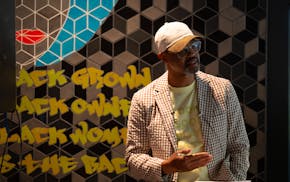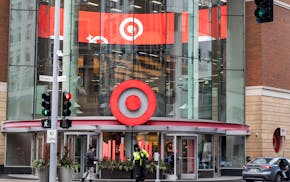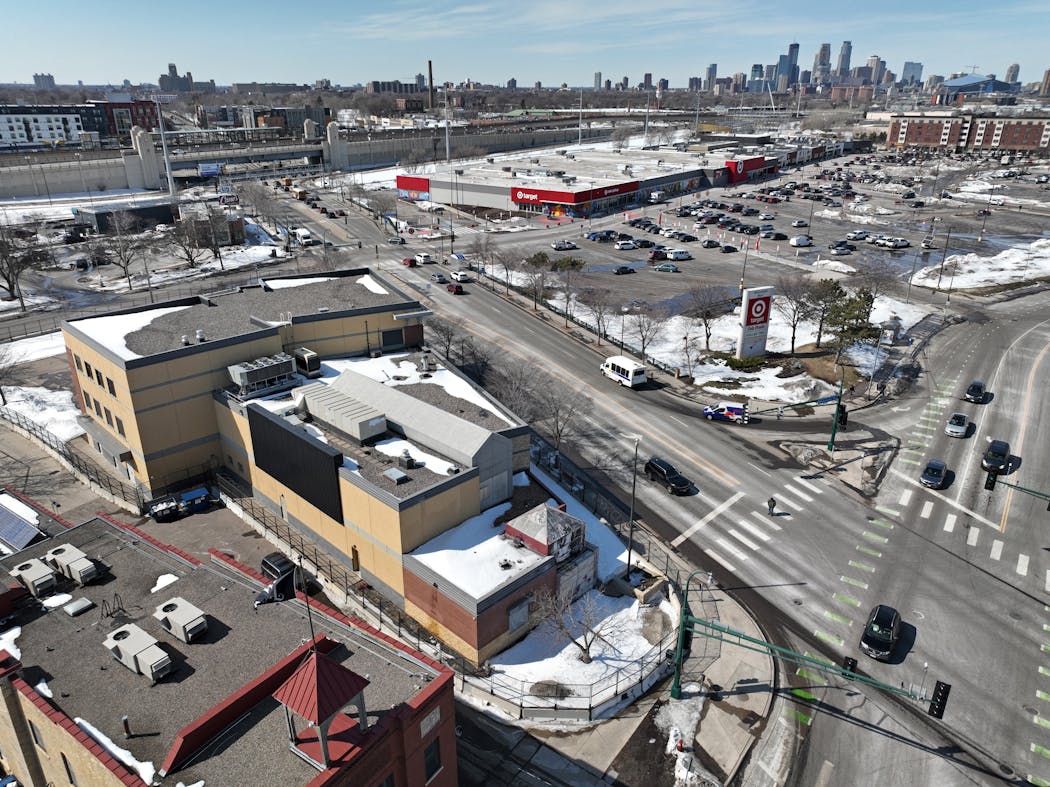Nearly three years after the police murder of George Floyd and the riots that followed, the Third Precinct police station at the epicenter of the unrest still stands.
Burned. Surrounded by fences and razor wire. Doors barricaded by giant concrete blocks.
It's terrible.
The building should have been torn down immediately. The city should have built another Third Precinct house somewhere else.
Instead, the inaction mystifies neighbors.
"After everything that happened over there, none of us heard anything from any city department except a letter telling us to clean the graffiti off our buildings," said Jamie Schwesnedl, co-owner of Moon Palace Books, which is on the same block near Lake Street and Minnehaha Avenue.
The stuck-in-time building starkly, and bizarrely, contrasts with all the redevelopment that has happened along Lake Street since hundreds of businesses were damaged in late May and early June 2020.
Just across from the Third Precinct building, Target rehabbed and reopened its store in less than six months. Cub Foods put up a temporary structure while it fixed its store, which was back in business in February 2021. The nearby century-old Coliseum Building, heavily damaged but still standing, is about to get a renovation.
Chris Mozena, executive director of the Firehouse Performing Arts Center immediately next to the police building, calls it "an enduring embarrassment to this city we all love."
"It's had a negative effect on our business. There's no way around that," he said last week.
He said neighbors want police in the neighborhood, but that the precinct building should be razed and a small park created that notes the unrest that happened there. Over four weekends in April, a group of artists will use projectors to light up the building with images of other prospective uses for it.
A city spokesman said it contracted this month with DeYoung Consulting, which is working with the Longfellow Community Council, for a comprehensive public survey about the Third Precinct and "the facility."
The Longfellow neighborhood group will host a series of meetings next month to glean whether people think it should be reopened as a police building or put to some other use. The city's Neighborhood and Community Relations Department is doing its own research with smaller focus groups. It will start a website on the issue soon.
The Longfellow group last year hosted several meetings to discuss the building. Only a few hundred people attended, a tiny fraction of the 130,000 or so served by the Third Precinct police. But three out of four said they didn't want the site to be used for a police station again.
Finding any new place for a police station is going to be difficult, particularly for a precinct that was described in the Star Tribune after the riots as a "playground" for renegade cops. The city has at least one alternative site.
"Nobody wants the precinct near them," Schwesnedl said.
A few weeks after the building burned, a contractor removed furniture, equipment, ceiling tiles, carpeting and appliances from the building. The city's property services staff has kept it in a minimal working order since.
"Every day I go past there and see that barbed wire and burned-out building and I can't believe it's still there," Schwesnedl said. "It makes me furious."
Robin Wonsley, who was elected to the City Council in 2021, campaigned against re-using the building as a police station. She calls it "a building with a history of harm" and is eager to hear ideas for how it could be transformed.
She disagreed with my notion that it should have been torn down right away. "It was important for the city not to have a response immediately. Community members wanted to process what transpired," Wonsley said.
But now, it's clear the city has waited too long to do something, she said. She praised Longfellow neighborhood groups for pushing the conversation along. "They took leadership in the time the city did not," she said.
I'm sure it will cost more to build a new precinct station than reopen that building. But it doesn't matter.
"There's such an incredibly emotional component at this point that it's hard to have a sober financial analysis that doesn't take into account the event that happened at this place," said Andy Hestness, executive director of Redesign Inc., the nonprofit community developer that is handling the remake of the Coliseum Building.
"The impact of that is something that I don't know that governments have a good way of analyzing," he said.
The people of Minneapolis, and all Minnesotans, are bearing an incalculable price for the slaying of Floyd, the unrest that followed and the historical reckoning those events represented. We will continue paying it for generations. A new police station is a pittance.

Ramstad: AI is English-centric, but it's picking up Hmong quickly

Ramstad: Minneapolis' Camden neighborhood is rising. Houston White wants to keep it that way.

Ramstad: Minnesota's big businesses are in crisis with a common problem

Ramstad: No business can 'eat' all the tariffs, not even Walmart



